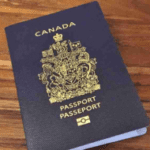Can I Travel Before I Receive My Canadian Pr Card?
Once an individual has applied for permanent residence (PR) and received a confirmation of permanent residence (COPR), they must still complete the process of becoming a confirmed permanent resident of Canada by landing and receiving a PR card.
Landings can be accomplished in two ways. They can be part of a full immigration to Canada, in which a new PR and their dependents arrive in Canada ready to settle, or as “soft landings,” in which new PRs simply land in Canada to complete the process of obtaining their status and receiving their first PR card.
In both cases (especially the latter), new PRs may be required to travel before they can obtain their PR card. Before receiving their PR card, new permanent residents can travel, but the process is more complicated than simply returning to Canada. This article will discuss what newcomers can do in such circumstances.
Please keep in mind that the following information is also applicable to those who have an expired PR card. The Canadian government suggests renewing a permanent resident card up to nine months before it expires.
What exactly is a PR Card?
Before delving into best practices, it’s important to understand what a PR card is and how it works.
A PR card is a form of identification issued by Immigration, Refugees, and Citizenship Canada (IRCC). It is used in Canada as a confirmation of status document and was implemented in 2002 as an alternative to printed identity documents.
When a new permanent resident is approved for PR, they will be issued a PR visa, which will allow them to enter the country. PR visas allow permanent residents to travel to Canada, whereas PR cards allow permanent residents to freely enter and reside in Canada as proof of their PR status.
It is important to note that when a new permanent resident arrives in Canada for the first time, they will need their PR visa (if their passport is from a country that requires a visa to travel to Canada), a valid passport, confirmation of permanent residence (COPR/e-COPR), and a valid medical test result.
New permanent residents will not be required to apply for their first PR card; it will be mailed to the address they provide to the border officer at the port of entry, or within the 180-day period required to report an address in Canada.
What should you do if you need to travel before you receive your PR card?
It is important to note that the Canadian government does not ship PR cards to addresses outside of Canada. Furthermore, third parties are not permitted to accept a PR card on behalf of a new PR. Because of this, a new permanent resident outside of Canada who does not have a valid PR card must apply for a Permanent Residence Travel Document (PRTD).
A PRTD is a travel document that permanent residents can use to re-enter Canada (usually only once). This document is useful for newcomers if:
They are a permanent resident; they do not have a valid PR card demonstrating their status; they are outside of Canada; and they intend to return to Canada by air, boat, bus, or train.
Notably, if a new permanent resident is returning to Canada by private vehicle, they can use other acceptable documents to prove their identity and status.
How to Obtain a PRTD
PRTDs are only available for use outside of Canada. To apply for a PRTD, new permanent residents must obtain the application package and complete all applicable forms and documentation. There are application fees, which must be paid online.
Permanent residents may not be able to submit a paper application depending on where they apply. In such cases, applicants must submit their application and all supporting documentation through the permanent residence portal if they choose to apply online. Permanent residents who apply on paper must submit their application to the nearest visa application centre (VAC). The method of application and the location from which it is submitted can both have an impact on how quickly a PRTD is issued.
Permanent residents who apply may be required to attend an interview with a VAC agent before receiving a decision on their application.
Other options
If new permanent residents are aware that they must travel urgently but still have time in Canada before leaving, they may apply for expedited processing of their PR card.
The need to travel within the next three months is one of the valid conditions for applying for this processing.
A job opportunity; your own serious illness; the death of a family member; work related to your current job; and/or a family member’s serious illness.
Importantly, even if a permanent resident is eligible for expedited processing of their PR card, they are not guaranteed to receive their PR card within a reasonable time frame. Applications for PR cards cannot be processed in less than three weeks.
#COPR
#IRCC


